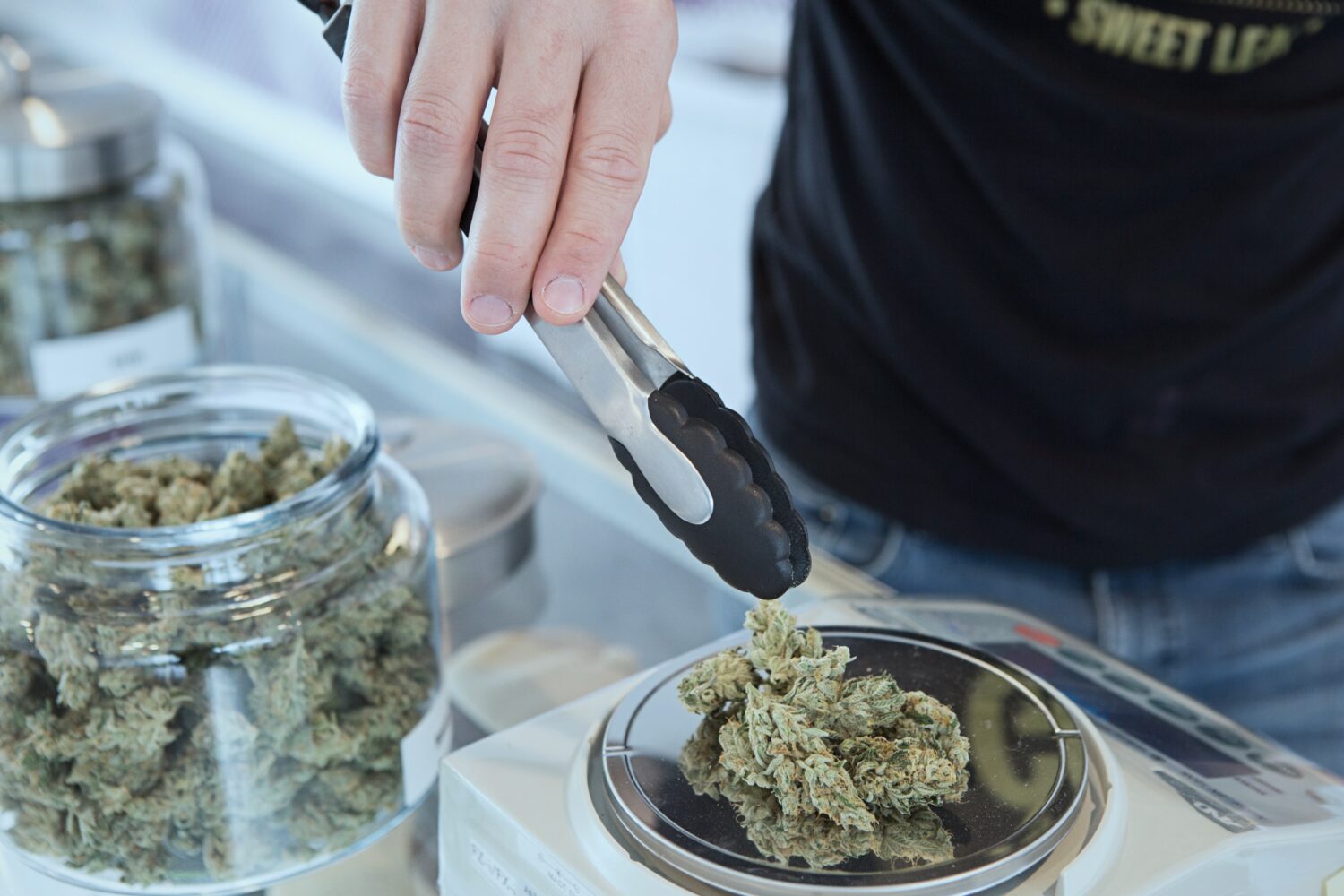The governor of New Jersey has signed a bill into law that will allow licensed marijuana businesses to deduct certain expenses on their state tax returns—a partial remedy as the industry continues to be blocked from making federal deductions under Internal Revenue Service (IRS) code known as 280E.
Gov. Phil Murphy (D) signed off on the legislation from Assemblymember Annette Quijano (D) on Monday, without a formal ceremony. This comes about three months after the legislature approved the measure with amendments.
While many state tax policies simply mirror federal law, the legislation says that, for the purposes of the New Jersey’s tax code, a licensed cannabis business’s gross income “shall be determined without regard to section 280E of the [federal] Internal Revenue Code.”
When it comes to federal tax policy, those businesses will still be subject to the IRS 280E code, which precludes entities that illegally sell Schedule I or II drugs from making key tax deductions in their federal filings. But under the New Jersey law, the licensed cannabis industry will at least see some state-level relief.
The legislation Murphy signed “shall apply to taxable years beginning on or after January 1 following enactment,” it says.
“The continued implementation of 280E placed severe financial constraints on cannabis operators, big and small, by prohibiting them from deducting common business expenses from their taxes,” the New Jersey Cannabis Trade Association said. “Now, New Jersey’s licensed cannabis operators will be treated like any other legal enterprise operating in New Jersey, a sense of normalcy that our industry will cherish.”
A fiscal analysis released last year found that the bill would likely have mixed economic impacts.
On the one side, the decoupling from federal 280E policy is expected to “result in an indeterminate annual loss of revenue” for the state because marijuana businesses would be eligible for relief from taxes that they currently pay.
On the other side, the Office of Legislative Services (OLS) said that “providing access to these deductions and credits may also help generate more economic activity by cannabis businesses,” and so “the State and local governments that tax cannabis businesses might indirectly realize an indeterminate amount of additional annual revenue.”
New Jersey isn’t the only state that’s working to address the unique financial challenges that the cannabis industry faces under federal prohibition.
Lawmakers in Iowa, New York, Pennsylvania and Virginia have similarly pursued tax relief for each of their state’s marijuana markets, for example.
At the congressional level, Rep. Earl Blumenauer (D-OR) reintroduced a bill last month that would amend the IRS code to allow state-legal marijuana businesses to finally take federal tax deductions that are available to companies in other industries.
He told Marijuana Moment that he’s “absolutely convinced when we are able to fully deduct their business expenses that there actually will be more revenue collected because people will comply fully with the law.”
For the time being, the marijuana industry continues to face tax policy challenges under the umbrella of prohibition. And as the Congressional Research Service (CRS) noted in a 2021 report, IRS “has offered little tax guidance about the application of Section 280E.”
IRS did provide some guidance in an update in 2020, explaining that while cannabis businesses can’t take standard deductions, 280E does not “prohibit a participant in the marijuana industry from reducing its gross receipts by its properly calculated cost of goods sold to determine its gross income.”
The IRS update seemed to be responsive to a Treasury Department internal watchdog report that was released in 2020. The department’s inspector general for tax administration had criticized IRS for failing to adequately advise taxpayers in the marijuana industry about compliance with federal tax laws. And it directed the agency to “develop and publicize guidance specific to the marijuana industry.”
Bipartisan and bicameral lawmakers have been working for years to pass legislation that would treat the cannabis sector like other legitimate enterprises, namely through the Secure and Fair Enforcement (SAFE) Banking Act, which was recently refiled in both chambers and will be discussed at a Senate committee hearing on Thursday. (Full Story)

